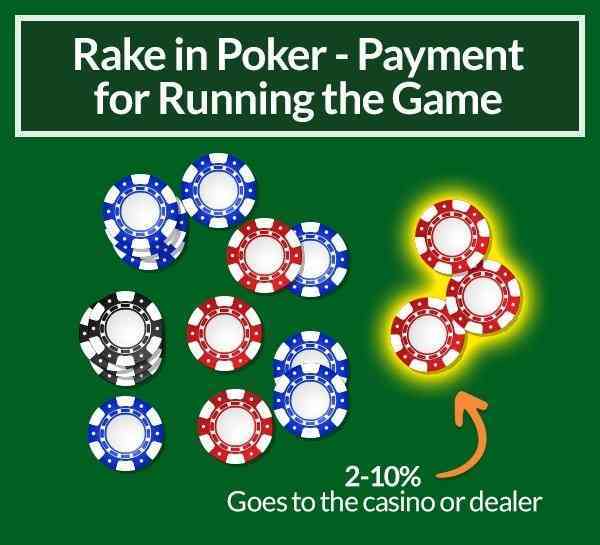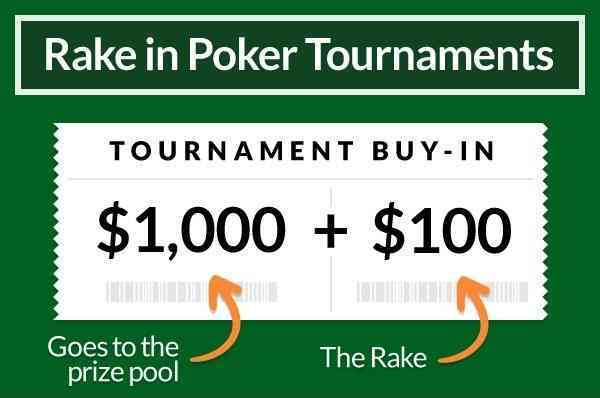Casinos are, without a doubt, in the business of making money. Every game, whether it's roulette, blackjack, baccarat, or slots, has a built-in advantage for the casino, known as the house edge.
The edge is usually around a few percentage points (depending on the game), ensuring that the casino will make money over a long period of time. The house makes roughly $30 for every $1,000 wagered on roulette, for example.
But poker isn't like that.

The game isn't played against the house, whether it's played online or in person. You compete against other players for money, or they compete against you for money – but not from the casino.
The casino has no stake in who wins or loses, and the dealer's role is limited to dealing cards and keeping score. So, what does the casino stand to gain? How can a casino profit from poker, and what factors enable them to host tournaments and maintain cash game tables? Recently we talked about what is straddle and How to play strip poker so make sure to have a look at it.
The solution to this question is a four-letter word that has a significant impact on the poker economy. That word is RAKE, and we're not referring to a garden tool for raking leaves from the sidewalk in front of your house.
Rake is a portion of the money taken from practically every cash game pot or tournament entry fee by a casino, similar to a tax.

In the following sections of this post, I'll go over the finer points of rake from both the casino's and the player's perspectives. You'll learn not only how casinos profit from poker, but also how rake affects your bottom line as a poker player.
Understanding the Fundamentals of Poker Rake
A casual poker player is unlikely to consider how the casino gets money from poker. They come in, sit down to play, have a good time, and (ideally) leave with more money than when they arrived.
Even if you don't need to know this information, it's still beneficial to know what rake is and how it works.
CAP rake vs. no CAP rake in cash games
In a cash game, the rake is taken out of the vast majority of pots before they are turned over to the winner, whether it be No-Limit Hold'em, PLO, or any other type of poker.
In most casinos, it is a set proportion, ranging from 2% to 10% of the total pot. Both of these extremes are uncommon, and you'll often pay a rake of 3 to 5 percent in most games.
There is usually a maximum cap on the amount of rake that can be taken out of any single pot, which is determined by the casino's rules.
It's not uncommon for players to sit with large stacks (500 big blinds or more), and if two of these players wind up in an all-in situation, having no maximum rake cap could cost them a lot of money.
Even so, some venues enforce the no-cap rule, but these aren't the games you want to be attending.
Let's take a look at a small example for clarity's sake. You're playing a $1/$2 game and find yourself in an all-in situation, putting all of your $300 on the table before the flop against a guy with a comparable stack.
Let's imagine the rake is set at 5% with a $10 cap, which means the most you'll ever pay for casino services is $10 from any pot you win. If the casino does not have a rake cap and the entire pot is $600, as in this example, you will be charged $30, which is three times the amount charged in the first situation.
Hourly rate option
Even while the method of collecting rake outlined above is the most common for cash games, some casinos use a different method.
You may occasionally find yourself in a game where you must pay an hourly fee to sit at a table. It means that when you play, no money will be withdrawn from the pot; instead, you will pay a set charge.
Because neither of these possibilities is better or worse, you should merely think of it as a new model that you should be aware of.
Differences based on the stakes
In light of this topic, it's worth noting that, in terms of rake, most small limit games are actually worse than the higher limit games.
A rake of 5% or more and a rather high cap are common in $1/$2 games. The rake at higher limit tables is normally approximately 3%, and the ceiling is also smaller in relation to the stakes.
Although this may not seem fair to lower stakes players, it's easy to see why when looking at it from a business standpoint. You're still occupying a table, whether you're playing with $2 or $100 blinds, and you'll need a continual dealer presence to keep the game moving.
To make it possible at lesser stakes, casinos must charge a greater rake than the blinds to provide their services.
Tournaments

Tournaments are a unique game style in which players battle for chips and try to outlast their opponents in order to advance to the money round. As a result, chip pots have no monetary value, and casinos are unable to collect rake in the same way that they can in cash games.
Tournament rake is instead paid in advance as part of the buy-in. A $100 event, for example, will usually have a buy-in of $110 or $120.
This additional $10 or $20 on top of the $100 is a rake, and it does not contribute to the prize pool. The casino keeps this money and uses it to fund the costs of putting on the event.
If you play tournaments and keep track of rake, you'll notice that online games have significantly lower rake than live games, particularly at lower stakes.
This is obviously simple to explain.
Live venues must pay for dealers, hire tournament floor space, tables, and plan everything to have a pleasant event, which comes at an additional cost to players, but online platforms do not have many extra fees for starting the tournament.
Beyond the Rake: How Do Live Casinos Profit From Poker?
Despite the fact that rake is the most important source of revenue from poker games, it isn't the most important for live venues when compared to other games. In fact, many casinos are content to break even and profit on the side while hosting a large tournament.
While this may not appear to make much sense at first glance, it is entirely reasonable when viewed in context.
To begin with, tournaments will frequently function as excellent feeders for cash games, which is excellent news for casinos with large poker rooms.
Casinos make a lot more money from cash games since a long cash session can net them a lot of money without exposing them to any risk. It's a fantastic method to supplement your household income.
Aside from that, large tournaments with substantial guarantees are a surefire method to get a lot of people in the door. Many of the people that come to the casino aren't just interested in playing poker.
After the event, they're likely to gravitate toward table games and slots, resulting in the casino amassing a large sum of money from these players over the course of a few days.
Of course, some of the larger operators provide other services such as food, beverages, and lodging, all of which are likely to generate money when a high number of individuals register to play in a tournament. So everything comes together to form a good bottom line.
Online Poker & Casinos
As previously said, internet poker rooms do not have as much expenses as land-based poker rooms. They don't need a few dozen dealers to organise a tournament with 2,000+ participants, for example. They also don't need to book a large venue for such an occasion.
Because everything takes place in a virtual environment, all they need are reliable servers that can handle the demand.
Rake alone can be a big money generator for online poker rooms and casinos for these reasons. Even if players don't wander off to the blackjack and the online roulette tables, they can make enough money to cover the costs of the business while still making a profit.
Of course, this necessitates sufficient player traffic, as the rake is only generated when the tables are active.
However, several online poker rooms have recently begun to merge the land-based concept, offering various live casino games in Canada right in the lobby. With today's online poker clients, players are only a few clicks away from spinning the reels or switching to a table game like blackjack or baccarat.
Conclusion: Know Your Rake
You now understand how casinos profit from poker and how they can afford to keep the games going despite the large tournament prize pools.
Poker can be a very realistic resource to increase their bottom line, especially with rake in place and all the additional cash coming from players trying their luck with casino games.
You should not be terrified of rake or dismiss it as something evil as a gamer.
Even if you've never heard of rake, the fact that casinos profit from poker games should come as no surprise. Why should poker be any different? After all, they do it with everything else.
However, you should become familiar with rake in the games you frequently play, as it can have a significant impact on your bottom line. Even if you're a very excellent player, games with absurdly high levels or rake and very high caps (or no cap at all) might be extremely difficult to beat.
If you have a choice, a game with a lesser rake may be worth considering. Unless there is a big disparity in the skill levels of the players, you will make significantly more money when the rake is smaller.







